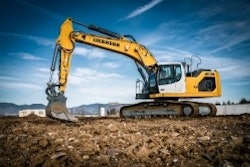Business succession planning is a bit like will writing. The natural inclination is to get it on paper, then lock away the documents. That might be one reason why, according to consulting firm Grant Thornton LLP, nearly 70 percent of family-owned companies do not make it to the second generation. Experts in company succession advise shifting your thinking about the topic from a perspective of “planning” to one of “management.”
A recent Herman Trend Alert shows fewer than half of companies with succession plans update them regularly, and “succession planning without succession management is virtually a waste of time.” With succession management, instead of formulating a static plan, you integrate preparation into daily operations. Everything from company strategy to human resources decisions should be aligned with succession management, according to Michelle Knox, an executive consultant with Novations.
Working toward the day your company can operate successfully without you requires addressing two distinct challenges: 1) finding the right person or people to take your place and 2) developing a plan to legally transfer ownership without the company suffering a serious financial blow. Both these tasks are daunting in our industry. Honing the myriad of skills – both technical and in dealing with people – will take time. And because of your reliance on heavy equipment, viewed by the federal government as high-dollar “assets,” your firm could be subject to extreme taxation upon your death.
Matt Stevens, a management advisor to construction contractors and author of the book “Managing a Construction Firm on Just 24 Hours a Day,” says succession planning should occur before age 50. Grooming others to manage your firm will take about five years, he says, and at 50, you will likely have the health and energy to mentor well. Have at least two candidates for each critical position in your company, said CPA Eric Wallace during a presentation on business succession at an Associated General Contractors conference. He advises selecting a successor/successors based not only on performance, but on behavior traits such as leadership and ability to work with others. Give potential successors increasing responsibility and authority, and hold them accountable, Stevens says. Also meet with them regularly to discuss their progress.
Great uncertainty exists concerning the future of the estate tax, aka the death tax, which AGC calls “one of the largest obstacles to the succession of a family-owned construction company.” A 2001 law that attempted to repeal the death tax phases it out through 2009. In 2010, there will be no death tax, but unless Congress acts to make the repeal permanent it will be reinstated in 2011 at pre-2001 levels – up to 55 percent of a firm’s assets ($1 million tax exemption). As things stand, you have to assume the tax will go into effect again in 2011.
Fortunately there are several ways to reduce or finance wealth-transfer taxes. Transferring ownership during your lifetime, setting up a life insurance policy or trust that can fund the transfer and planning for the liquidation of certain assets are a few. Since tax law is complicated, hiring a CPA who has contractor estate planning experience is the best route.
With so many immediate issues vying for your time and resources, turning your attention toward the long-term project of succession can be difficult. But because your family and those of your employees will likely suffer if you leave your company in unprepared hands or don’t plan for a financial transfer, it’s something you can’t afford not to do.






